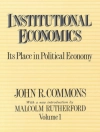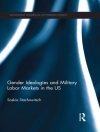This volume explores some of the key features of popular politics and resistance before and after 1994. It looks at continuities and changes in the forms of struggle and ideologies involved, as well as the significance of post-apartheid grassroots politics. Is this a new form of politics or does it stand as a direct descendent of the insurrectionary impulses of the late apartheid era? Posing questions about continuity and change before and after 1994 raises key issues concerning the nature of power and poverty in the country. Contributors suggest that expressions of popular politics are deeply set within South African political culture and still have the capacity to influence political outcomes. The introduction by William Beinart links the papers together, places them in context of recent literature on popular politics and ‘history from below’ and summarises their main findings, supporting the argument that popular politics outside of the party system remain significant in South Africa and help influence national politics. The roots of this collection lie in post-graduate student research conducted at the University of Oxford in the early twenty-first century.
Daftar Isi
Chapter 1: Popular politics and resistance movements in South Africa, 1970–2008
William Beinart
Chapter 2: The Durban strikes of 1973: Political identities and the management of protest
Julian Brown
Chapter 3: ‘There’s more to it than slurp and burp’: The Fatti’s & Moni’s strike and the use of boycotts in mass resistance in Cape Town
Tracy Carson
Chapter 4: The role of the African National Congress in popular protest during the township uprisings, 1984–1989
Thula Simpson
Chapter 5: Strategies of struggle: The Nelson Mandela campaign
Genevieve Klein
Chapter 6: From removals to reform: Land struggles in Weenen in Kwa Zulu-Natal, South Africa
Chizuko Sato
Chapter 7: From popular resistance to populist politics in the Transkei
Tim Gibbs
Chapter 8: ‘It’s a beautiful struggle’: Siyayinqoba/Beat it! and the HIV/AIDS treatment struggle on South African television
Rebecca Hodes
Chapter 9: The Nelson Mandela Museum and the tyranny of political symbols
Mfaniseni Fana Sihlongonyane
Chapter 10: Black nurses’ strikes at Baragwanath Hospital, Soweto, 1948–2007
Simonne Horwitz
Chapter 11: The ‘New Struggle’: Resources, networks and the formation of the Treatment Action Campaign (TAC) 1994–1998
Mandisa Mbali
Chapter 12: New social movements as civil society: The case of past and present Soweto
Kelly Rosenthal
Chapter 13: ‘Phansi Privatisation! Phansi!’: The Anti-Privatisation Forum and ideology in social movements
Marcelle C. Dawson
Tentang Penulis
Marcelle C. Dawson is a Senior Lecturer in Sociology and Departmental Postgraduate Committee Chair at the University of Otago.












